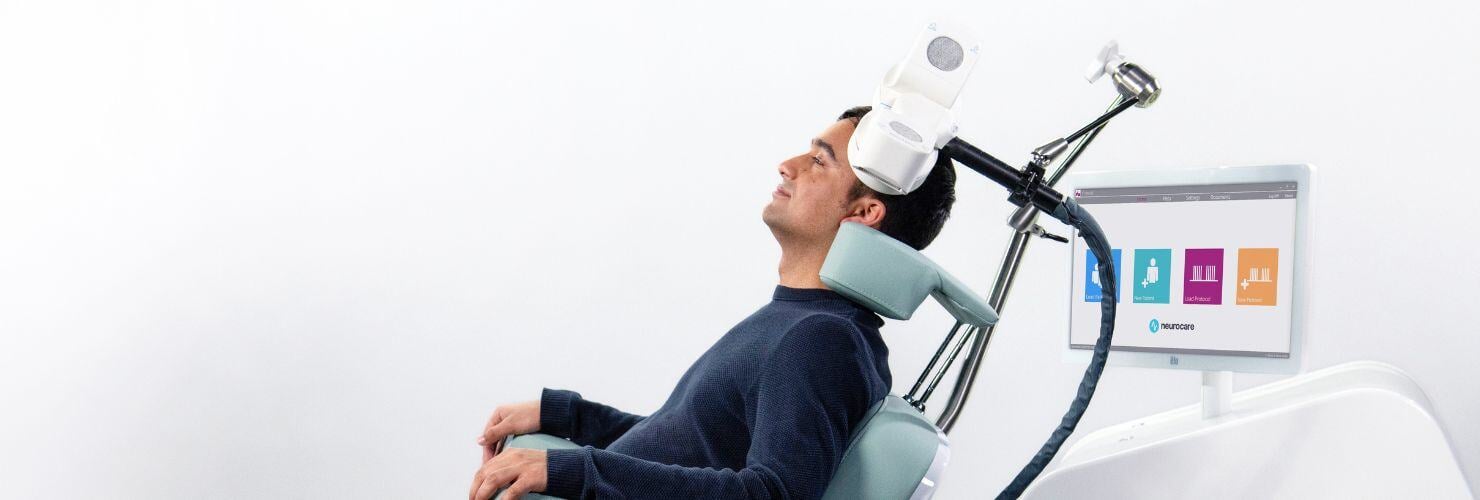Treating OCD with TMS - the evidence
Can obsessive compulsive disorder be treated with transcranial magnetic stimulation? Transcranial magnetic stimulation can help to reduce the symptoms and behaviours of obsessive compulsive disorder (OCD).

What are the NICE guidelines for treating OCD?
At Smart TMS we recommend that every patient with OCD should follow the NICE treatment guidelines. Psychological treatment should be provided first and this should include CBT with exposure and response prevention (ERP), administered by an experienced therapist. Patients with OCD who are resistant to psychological treatment alone should be offered treatment with an SSRI drug (Fluvoxamine, Paroxetine, Sertraline or Citalopram) combined with CBT/ERP. If there has not been an adequate response to a standard dose of an SSRI, then an increased dose should be considered. Clomipramine (a tricyclic antidepressant) should be considered after an adequate trial of at least one SSRI has been ineffective.
If this is not effective a number of other options can be prescribed by a Consultant Psychiatrist. This might include adding an antipsychotic drug to an SSRI or to Clomipramine or combining Clomipramine with Citalopram. If there has not been an adequate response to the standard dose of Clomipramine, an increased dose should be considered.
Somewhere in the region of 40% of patients with OCD are resistant to the above treatment.
How does Transcranial Magnetic Stimulation work?
TMS is a pulsating magnetic field which stimulates brain cells and can change the excitability of these cells in the cortex of the brain. Low frequency TMS used in the treatment of OCD decreases cortical excitability and it is not associated with any serious side effects. A minority of patients may experience a transient headache or some local and transient discomfort over the treatment site. A response to TMS will be detected within 5 sessions, if it is going to be effective.
What is the evidence for the treatment of OCD with TMS?
A systematic review of the treatment of OCD with TMS was conducted by Zhou in 2017, who reviewed 20 studies with 791 patients. They concluded that TMS gave clinically significant improvements compared to a placebo. Arns reported in 2018 that TMS can lead to remission in about 30% of OCD patients and a clinically significant improvement in 55% who had failed to respond to medication and psychotherapy.
What are the treatment results at Smart TMS?
At Smart TMS, we have data on a case series of 103 patients treated for OCD. We found that 3 out of 10 (30%) of these patients saw at least a 35% improvement in their OCD symptoms. Furthermore, 3 out of 10 (28%) patients went into remission, and so no longer fulfilled the diagnostic criteria for OCD.
Is improvement in OCD with TMS likely to be sustained?
Gomes in 2012 showed that the improvement following TMS was maintained for at least 14 weeks. However, there are no published long-term follow up studies. At Smart TMS we have found that complete recovery can be sustained over the long-term with top-ups every few months. We can provide a tailored relapse-prevention program or maintenance treatment.
Circadian Sleep Disturbance and TMS treatment for OCD:
Donse in 2017 showed that patients with OCD who have difficulty getting off to sleep at night and then sleep for too long in the morning (a circadian rhythm sleep disorder) may have a reduced response to TMS. We recommend patients with this problem should speak to their own doctor about treating this condition before TMS commences. We can provide a help sheet on treating sleep disorders.
Conclusions and recommendations:
TMS should be considered only when the treatment recommended by NICE has failed. The decision to try TMS in patients with OCD, who are resistant to the traditional forms of treatment, will be an individual decision, informed by the information summarised above.

Dr Leigh A Neal MB BCh FRCPsych MRCGP MD
Consultant in Psychiatry and Neuromodulation
Medical Director: Smart TMS










